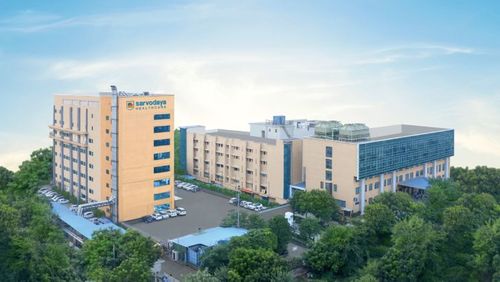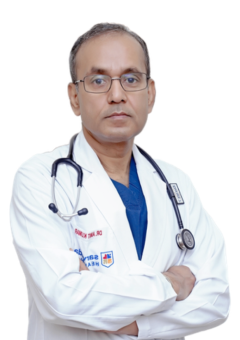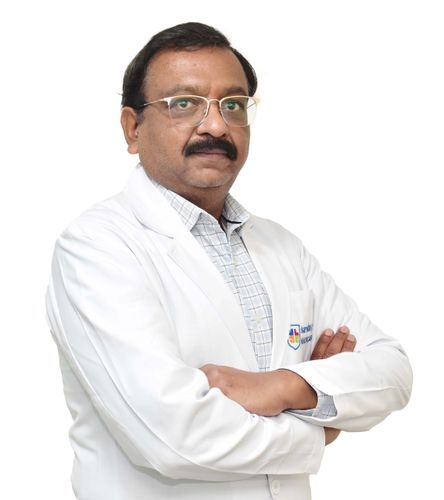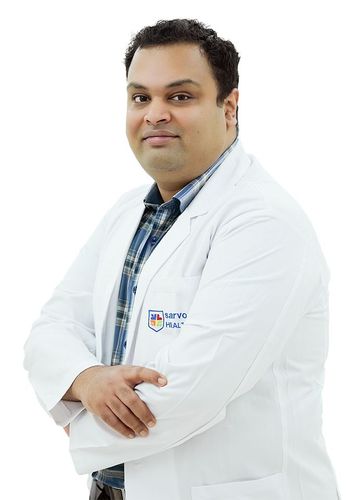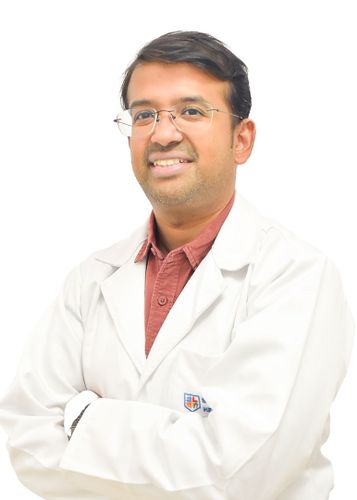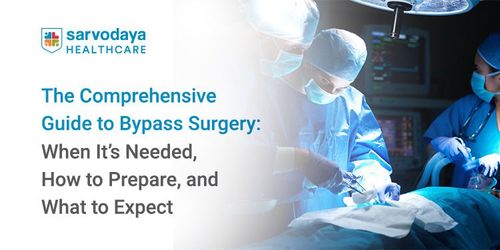Overview
At our heart bypass surgery hospital in Delhi NCR, we safely restore blood flow around blocked coronary arteries, reducing heart attack risk and relieving chest pain. Our skilled cardiac surgeons perform multiple types of bypass surgery, including minimally invasive, on-pump, and off-pump procedures.
Heart bypass surgery, including robotic coronary artery bypass surgery, creates new pathways for blood to reach the heart when arteries are severely narrowed. This advanced robotic approach allows for greater precision, smaller incisions, and faster recovery.
Why is heart bypass surgery required?
Heart bypass surgery is recommended when multiple coronary arteries are severely blocked or when angioplasty isn’t suitable. It’s often advised for left main artery narrowing, multiple vessel disease, complex blockages in diabetic patients, or failed stent procedures.
Symptoms like severe chest pain, breathlessness, or poor stress test results may indicate the need. At our heart bypass surgery hospital in Delhi, India, our cardiac team will assess angiogram results and heart function to decide if surgery offers better long-term outcomes than other treatments.
Procedure of Bypass Surgery
At Sarvodaya Hospital, we start with a thorough evaluation including blood tests, chest X-ray, echocardiogram, and anaesthetic assessment. On surgery day, you receive general anaesthesia and monitoring. In traditional open-heart bypass surgery, the surgeon accesses the heart through the breastbone.
The procedure may be on-pump, using a heart-lung machine, or off-pump on the beating heart. Healthy vessels from your leg, arm, or chest are used to bypass blocked arteries. Surgery typically takes 3–6 hours based on complexity and grafts needed.
Technology and Infrastructure
Our cardiac surgical suites feature advanced monitoring systems, precision instruments, and state-of-the-art heart-lung machines for safe cardiopulmonary bypass.
We offer traditional and minimally invasive approaches, including robotic coronary artery bypass surgery and off-pump coronary surgery, to reduce trauma and improve surgical outcomes. Robotic-assisted techniques allow greater precision, smaller incisions, and faster recovery for eligible patients.
Post-operative support includes cardiac ICU monitoring, mechanical ventilation when needed, and structured rehabilitation.
We collaborate closely with our top Interventional cardiologist in Delhi NCR for precise surgical planning and optimal recovery, supported by advanced imaging and laboratory services.
Benefits of Heart Bypass Surgery:
- Long-lasting Relief from Angina: Offers sustained reduction in chest pain and discomfort, helping patients live more active, pain-free lives.
- Reduces Heart Attack Risk: Significantly lowers the likelihood of future heart attacks by restoring healthy blood flow to the heart.
- Improves Survival Rates: Demonstrates superior long-term outcomes, especially for patients with diabetes or weakened heart function, compared to repeated angioplasty.
- Restores Energy & Exercise Tolerance: Many patients regain stamina, allowing them to return to daily routines and physical activities with ease.
- Addresses Multiple Blockages: Enables surgeons to bypass several narrowed or blocked arteries in one procedure, ideal for complex coronary disease.
- Durable Results: Bypass grafts typically remain effective for many years, ensuring lasting heart health benefits.
- Safer with Modern Techniques: Advances in surgical methods and perioperative care have improved safety, reduced risks, and shortened hospital stays.
- Faster Recovery: Enhanced care protocols mean quicker return to normal activities with reduced complications.
- Personalised Care Approach: Surgery is tailored to each patient’s specific heart condition, ensuring the most effective long-term outcome.
Post-Surgery Lifestyle Modifications
After heart surgery at a trusted cardiac hospital, adopting healthy habits helps you heal, improve heart strength, and reduce risks of future complications.
- Wound Care and Hygiene
- Pain Management and Mobility
- Cardiac Rehabilitation
- Balanced Nutrition
- Medication Adherence
- Activity Restrictions
- Sleep and Rest
- Long-Term Recovery


